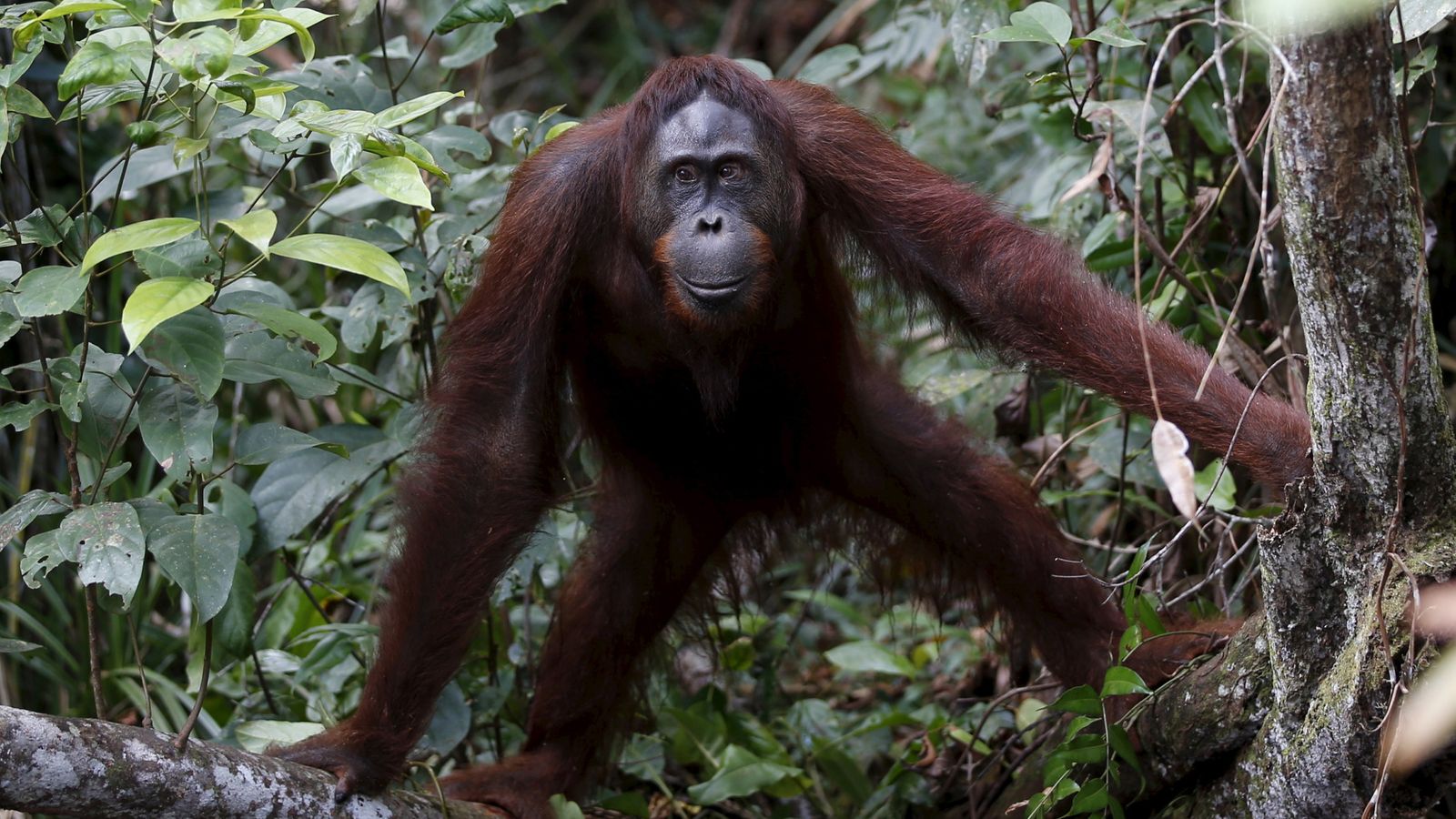Great apes deliberately spin around to make themselves dizzy, researchers believe.
The study by the universities of Warwick and Birmingham could provide clues about humans evolving the desire to seek altered mental states and actively manipulate their mood and perception of reality.
Researchers observed online videos in which great apes – gorillas, chimpanzees, bonobos and orangutans – spin to deliberately make themselves dizzy.
“Every culture has found a way of evading reality through dedicated and special rituals, practices or ceremonies,” said Dr Adriano Lameira, associate professor of psychology at the University of Warwick, who co-led the study.
“This human trait of seeking altered states is so universal, historically and culturally, that it raises the intriguing possibility that this is something that has been potentially inherited from our evolutionary ancestors.
“If this was indeed the case, it would carry huge consequences on how we think about modern human cognition capacities and emotional needs.”
The research team analysed 40 videos and found the primates revolved 5.5 times per episode of spinning on average, with an average speed of 1.5 revolutions per second. They did this on average three times.
The study compared spinning speeds and found the animals can spin while holding a rope as fast as professional human dancers and circus artists – as well as Dervish Muslims who take part in whirling ceremonies in order to achieve a spiritual trance.
Read more:
Chimp shares object – showing behaviour thought to be unique to humans
Parallel between ape and human behaviour ‘beyond coincidental’
Dr Lameira added: “Spinning alters our state of consciousness, it messes up with our body-mind responsiveness and coordination, which make us feel sick, lightheaded, and even elated as in the case of children playing in merry-go-rounds, spinner-wheels and carousels.”
He continued: “If all great apes seek dizziness, then our ancestors are also highly likely to have done so.
“We asked ourselves what role these behaviours play when it comes to the origins of the human mind.
“The apes were doing this purposefully, almost as if they were dancing – a known mechanism in humans that universally facilitates mood regulation, social bonding and heightens the senses and is based on rotation movements.
“The parallel between what the apes were doing and what humans do was beyond coincidental.”
Apes ‘deliberately keep spinning despite effects of dizziness’
In videos where the animals used ropes or vines to spin they spun the fastest and for the longest amount of time, the study found.
The researchers also tried spinning at these speeds and times themselves and found it difficult to achieve the third bout of spins at these speeds – apes were noticeably dizzy at that point in the video and were likely to lose their balance and fall down.
“This would indicate that the primates deliberately keep spinning, despite starting to feel the effects of dizziness, until they are unable to keep their balance any longer,” explained Dr Marcus Perlman, lecturer at the department of English language and linguistics of the University of Birmingham, who co-led the research.
Be the first to get Breaking News
Install the Sky News app for free
Study could explain role of altered states on evolution of human mind
While past studies attempting to understand human motivation for self-induced dizziness focused on substance use such as alcohol or drugs, it is uncertain whether these or other substances would have been accessible to human ancestors.
The researchers said this study could be more relevant to explain the role of altered states on the evolution of the human mind.
Dr Lameira said: “The further back in human history you look, the less certain we can be about the role that substance-induced experiences played in our evolution.
“It’s not clear whether our ancestors had access to mind-altering substances, or if they had the tools and knowledge to create the substance.
“For example, people may have had access to grapes, but you cannot assume they have the tools or the knowledge to create wine.”
The researchers say further research is needed to understand the animals’ motivations for engaging in the spinning behaviours.
The study was published in the Primates journal.








